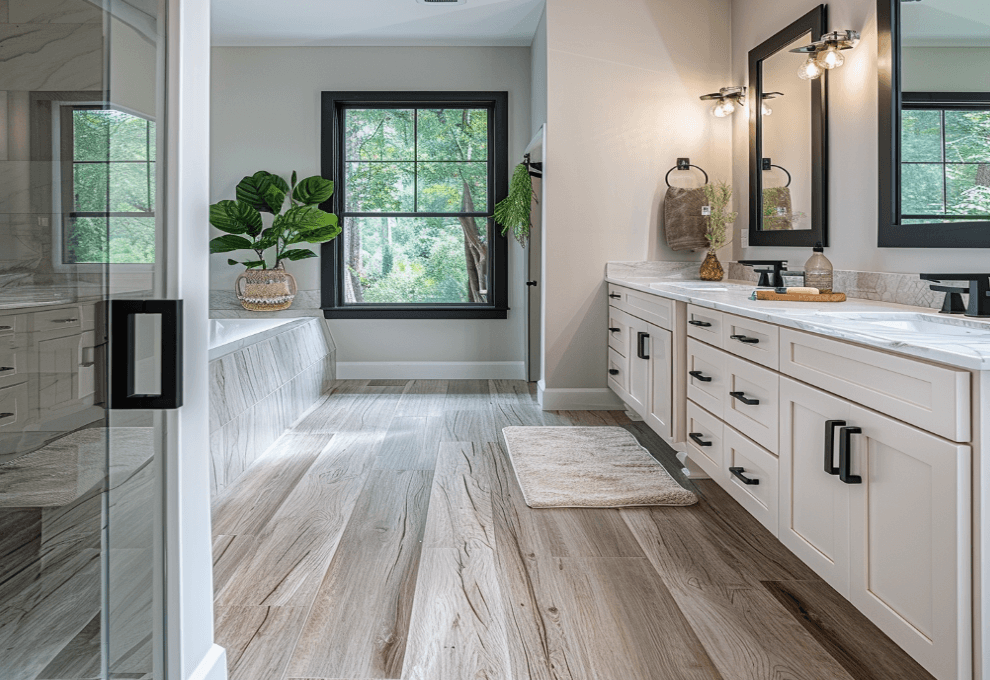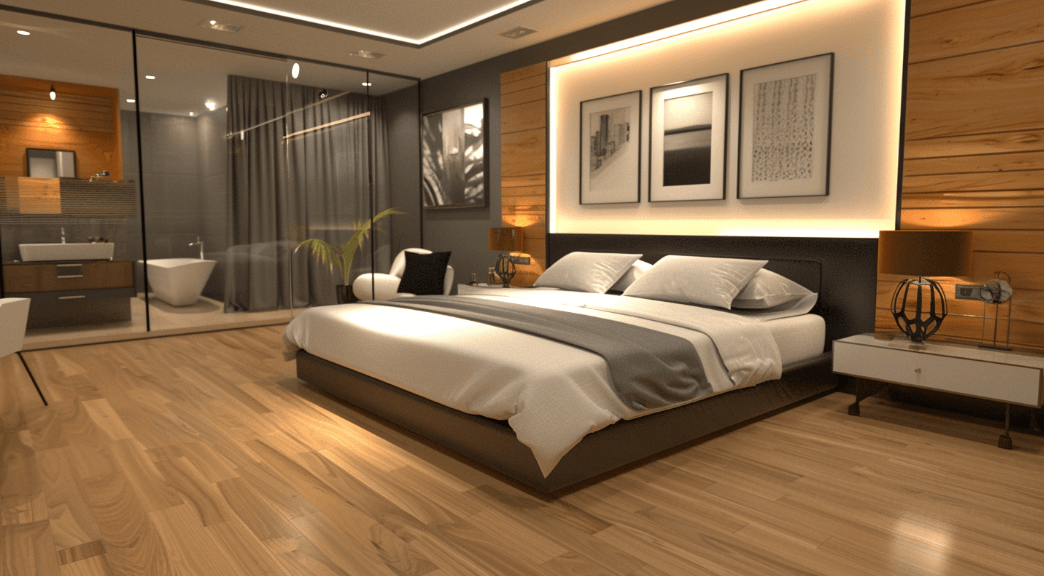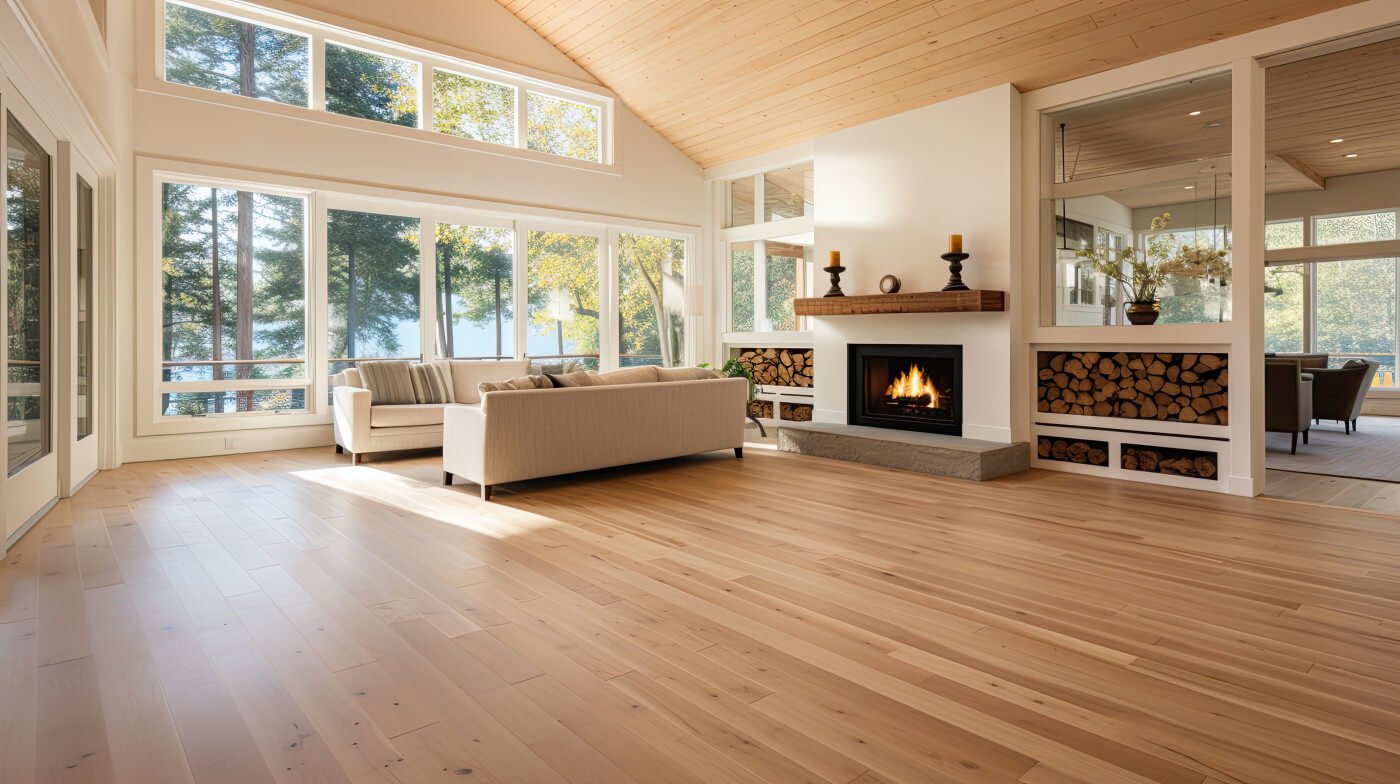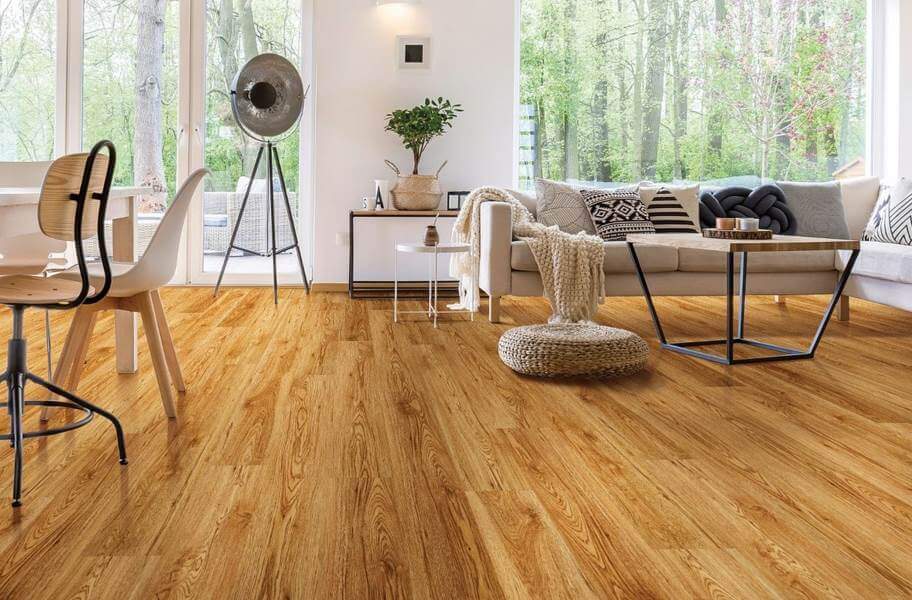Picking the right floor for your bathroom means finding something that looks good, lasts a long time, and can handle water. Bathrooms get wet and humid, which can damage floors that are not designed for such environments. Let's check out the best flooring choices that are perfect for bathrooms.
What are the Best Bathroom Flooring Options?
For the ideal blend of style and moisture resistance in the bathroom, these materials stand out:
- Tile: Always a favorite because it looks good for years and doesn't let water through.
- Vinyl Plank: Easy on the wallet, comes in lots of styles, and isn’t prone to damage when wet.
- Engineered Hardwood: Gives you that cozy, wood look without the worry of water damage that happens to real wood.
Tile
Tile stands the test of time in bathrooms. This comes down to its inherent water resistance, vast design options, and exceptional durability. Choose from ceramic, porcelain, or natural stone tiles to achieve your desired look.
Pictured above:
Mohave Nero In Blanco - Polished
Marble Satin Matte In Bronzo - Satin Matte
Marble Polished In Allure - Polished
Tile, especially porcelain, boasts remarkable resilience against moisture, scratches, and wear. With almost endless colors, patterns, and textures, finding a tile that complements your bathroom décor becomes an enjoyable design experience.
Vinyl Plank
Vinyl plank, particularly its luxury variations with rigid cores (like SPC), combines affordability, versatility, and moisture-battling abilities. It excels at replicating the look of materials like wood and stone and, therefore, provides a warm visual appeal without their cost or moisture concerns.
Pictured above:
Luxury vinyl plank (LVP) is a practical, budget-friendly bathroom flooring option. Advances in design technology allow for stunning wood, tile, or even artistic patterned variations. The fact that it's a softer material than tile makes it a lot more comfortable to walk on.
Engineered Hardwood
While solid wood is bad for bathrooms, engineered hardwood offers a workaround. Its layered construction, with a real wood veneer on top, gives the authentic look of wood. Special coatings and water-resistant cores minimize moisture penetration, though engineered hardwood still demands more care than tile or vinyl in wet environments.
Engineered hardwood adds a touch of natural beauty and warmth to a bathroom. However, it comes at a higher cost than tile or vinyl and requires more vigilant maintenance.
Factors to Consider
The material isn't the only thing you should keep in mind when picking your bathroom flooring, there are other factors you should consider:
- Price: Tile and Vinyl are usually cheaper than engineered hardwood.
- Upkeep: Tile requires the least effort to clean, while engineered hardwood may present more of a challenge when it comes to cleaning.
- Comfort: Vinyl and engineered hardwood are more comfortable to stand on than tile.
- Design: It's entirely up to your preference!
Avoid these options for your bathroom
Skip these bathroom flooring options for various reasons listed below:
Carpet
While carpet does have a soft and cozy texture, it's not a good idea to put it in a bathroom for obvious reasons. The moisture that the carpet traps will turn into mold in no time, and nobody wants mold in their bathroom.
These can cause health problems and damage your bathroom's structure. Plus, the ick factor of a nonwashable bathroom floor is undeniable.
Hardwood & Laminates
Hardwood floors are beautiful, but they don't belong in bathrooms.
Even with the best installation and sealing, hardwood is easily damaged by water over time. Constant moisture will make them rot and require frequent refinishing.
Laminate and engineered floors aren't much better. While they might have a real wood surface, the materials underneath are often not moisture-resistant. Water can seep through seams causing warping and swelling.
Key Takeaways
The term "waterproof" is used quite often in the flooring industry, but it's important to be more specific and look into what you're buying:
- Water Resistance: Not all "waterproof" floors are the same. Some may only handle occasional spills that can be wiped up quickly while others might withstand standing water for hours or even days.
- Ask the Right Questions: Ask the seller specific questions and make sure that your needs are met with the floor you're getting:
“Can this flooring be submerged for extended periods?”
“What is the recommended maximum time for standing water before cleanup is required?”
“Is this suitable for areas with regular, high moisture (like bathrooms and saunas)?”
- Manufacturer Details: Always read the manufacturer's specifications to understand the true level of water resistance. This information will give you the confidence to pick a flooring material that matches the potential level of moisture exposure it will face in your home.










